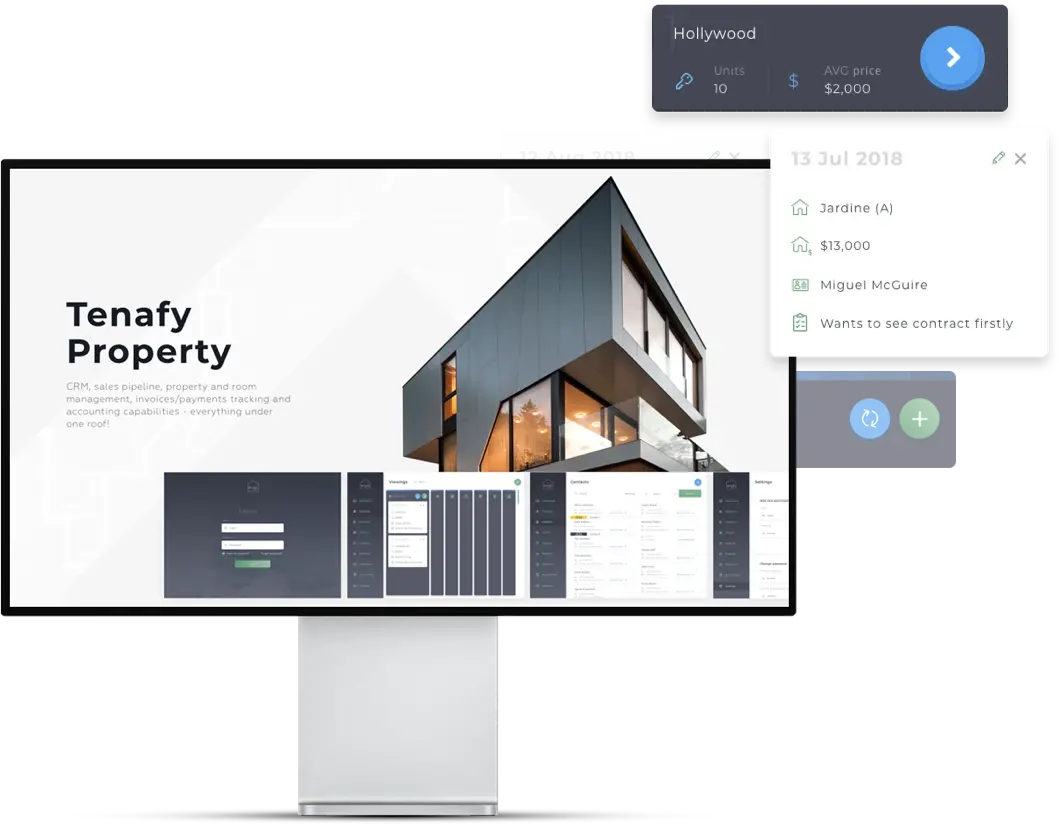A well-optimized process for searching and hiring agents is at the core of pushing the real estate agency’s growth and strengthening client relationships. And this is where automated platforms help minimize administrative burden, enabling faster identification of just the suitable work candidates. Artificial Intelligence (AI) further helps optimize the strategy for attracting and retaining more talented employees.
This article shares pro tips and insights on creating a successful AI recruiting platform for real estate.
Understanding AI and Its Role in Real Estate Recruiting
AI refers to the ability of computer programs to perform tasks that were traditionally considered exclusive to humans. The term AI is applied to projects endowed with processes akin to what human intelligence usually handles. Experts predict that by 2029, the market volume for AI will exceed $1335.8 billion!

Why is AI gaining such momentum? Because of the vast array of algorithms and tools capable of swiftly gathering data, identifying patterns, optimizing operations, and predicting trends.
Real estate is a delicate market. Clients typically seek quick and efficient solutions. But finding offers that really hit the spot is not that easy, as few properties meet one’s expectations to the fullest. To address this and make the client’s life easier, we need an impartial machine that never makes mistakes.
The Need for an AI Recruiting Platform for Real Estate
Human beings are inherently subjective in their thoughts, assessments, and decisions, which is why the most advanced brokers use AI tools for pure, unprejudiced recruitment processes. Furthermore, properly integrated AI helps enhance client conversion rates while granting the rapid selection of productive personnel regularly.
Here are just a few obvious advantages of a recruiting platform in the real estate sector:
- Excellent attention to detail;
- Significant workflow time reduction;
- Consistently delivering high-quality results
But let’s take a more detailed look at the definitive benefits of adopting AI in real estate recruiting against the backdrop of relevant market challenges.
Current challenges for real estate recruiting
Attracting and retaining the best agents has remained a major challenge for brokerage firms for the longest time. You must evaluate and improve the hiring process to ensure that your team comprises the most experienced real estate specialists. In terms of this, you need to address the following challenges:
- Shortage of experienced professionals;
- Poor employee retention;
- Weak brand positioning

Due to time constraints, many brokerage firms are forced to hire job candidates as quickly as possible, sometimes overlooking their professional skills. To avoid hasty and indiscriminate hiring, it is better to anticipate new job openings and promptly approach the most experienced agents once they become available in the job market.
Employee retention is much more cost-effective than the endless cycle of hiring new people. It is essential to find out why your agents are leaving. You have to track their satisfaction levels, understand their desires and needs, and provide incentives for their growth.
Learn what it takes to develop a property management system
To attract the attention of top-notch professionals, your agency must stand out. Seize any opportunity to create a positive image. Make your agency a champion of innovation. This will let agents know they can rely on highly efficient processes with your team.
How AI can address challenges in real estate recruiting
AI can quickly identify the right people for the job while granting automation and manual labor reduction. With predictive analytics, it won't overlook a single worthy-of-attention candidate, analyzing social media profiles and making forecasts based on that data.
AI-powered VC analysis allows for faster extraction of key information. Its unbiased evaluation of resumes ensures you get the best specialists selected according to your criteria. And AI works round-the-clock, inviting candidates for interviews and conducting the initial screening at all times.
AI also constantly learns and analyzes newly-hired "protégés" during their tenure in your team, helping improve their individual experiences. On top of that, the same chatbot can conduct surveys that will keep you informed about issues concerning your specialists. This will contribute to building a positive image of an innovative company.
Key Features of an AI Recruiting Platform for Real Estate
Using an AI-powered recruiting platform is more than justified if it provides key features to effectively meet the specific needs of the real estate industry. These should include the following.
Candidate sourcing and screening
Traditional methods of finding and assessing real estate agents often rely on subjective judgments and labor-intensive manual processes. AI can help overcome these issues by objectively determining which candidates are suitable, devoid of emotional biases.
It can provide transparent information about their performance by gathering data on realtors' activities from specialized resources and then sorting them based on multiple parameters.
Interview scheduling and coordination
AI assigns each candidate a suitability score, ranking them based on specific requirements. Chatbots and human dialogue interfaces based on AI are invaluable during the initial screening phase as they optimize the application and processing of candidate submissions.
Candidate engagement and communication
AI's precision in various tasks often exceeds human capabilities. If you have an extensive candidate database, a bot may "review" your list, analyze it based on your requirements, and create a queue of the most promising candidates for your company.
Using AI in video interviews helps predict a candidate's future behavior. Analyzing facial expressions, involuntary body movements, response times, and the answers can provide deeper insights into the candidate's personality and potential fit within your team.
Analytics and reporting
Predictive analytics in candidate selection not only saves time but also identifies qualifications, experience, knowledge, and other parameters relevant to specific positions.
The correlation between job performance and assessment can help fine-tune the hiring process for any position. By studying customer satisfaction ratings and market trends, AI-powered analytics can help make real-time decisions faster.

Steps to Build an AI Recruiting Platform for Real Estate
Building this type of platform calls for a well-defined concept and the skills and knowledge of a reliable AI software development team. And a well-adjusted workflow process will help you avoid common pitfalls and mistakes. So take things step by step.
Defining the project scope and objectives
Begin here, as everything else depends on it. A clear understanding of the tasks will help formulate the action plan and the strategy for implementing AI into an existing or new recruiting platform. This is essential to make it up-to-date and effective.
Gathering and analyzing requirements
Continue your project preparation with a description of the necessary software specifications. Without detailed information about design, feature development, and maintenance, you won't be able to create a solid platform. You need to gather and analyze all the minor and major requirements.
Case Study: DIM9000

Designing the platform architecture
Focus on the platform's architectural properties rather than individual applications. The structure should be simple, maintainable, and scalable to accommodate increasing vacancies and candidates. We recommend using cloud technology, which enables the realization of complex ideas at a reasonable expense.
Developing the platform
Develop a Minimum Viable Product (MVP). This is a great, safe approach where you start by implementing only the core features of your recruiting application to expand the solution later. Using well-proven technologies and adjusting to the relevant user or tester feedback, you get all the chances to assemble a market-defining app.

Testing the platform
Your developers should be capable of creating error-free recruiting applications. They must have skills in unit testing, know how to use automated QA tools, and have a critical approach to their work to ensure the solution meets all specified requirements.
Deploying the platform
After thorough testing, you can deploy the platform in the user market. Once your solution gets into the users’ hands - their feedback is king. Focus on how well it performs and the feedback it receives, and then fine-tune it to perfection (it is a must whether you have an MVP or a full product deployed.
Training and support
Provide comprehensive training for HR teams and hiring managers to effectively use the platform. Continuous technical support to address any issues that arise among the existing users is another must.
Continuous improvement
Teach the platform to constantly learn from interactions and results to improve its effectiveness over time. Ensure regular updates and enhancements to maintain the platform's relevance and efficiency.
Challenges of AI Implementation in Real Estate Recruiting
Technology is rapidly advancing across many industries, but some brokers still fear AI-based solutions. Some are unsure if machines are good enough, while others are afraid of being replaced by automated tools. In some ways, both concerns hold merit. At the same time, we should keep in mind that AI, while beneficial, is not yet perfect.
On the one hand, machines have demonstrated superior abilities in performing repetitive and routine tasks. On the other hand, AI's use in recruiting adds value to human labor. Regardless, AI is a trend in HR technology that needs to be studied and implemented further.
Potential challenges of implementation
Among the relevant drawbacks of AI-based recruiting platforms, some stand out:
- High implementation costs;
- Technical expertise requirement;
- Data-driven limitations;
- Task-specific functionality

Certainly, AI leads to the reduction of some job positions, but its implementation also creates new professions. It also helps uncover subtle behaviors in job candidates that may be imperceptible to the human eye. However, it still cannot replace human qualities like contextual understanding and empathy.
An AI-driven hiring tool can determine a candidate's relevant experience, but it is merely an algorithm that may overlook factors like a person changing jobs multiple times in a year. It might not understand the reasons behind these moves. And relying solely on its decisions is not advisable.
Solutions to these challenges
AI is gradually transforming the recruitment industry, whether you like it or not. It continues to evolve, and eventually, its shortcomings might be addressed at least partially. Just add a human collaborator who can handle manual aspects and train them on the system's functions and capabilities.
Implement the platform step-by-step, starting with key features that address the most pressing issues. Gradual implementation helps reduce risks and makes it easier to embrace new possibilities.
Experiment with new software tools to see what works best for your organization. Continuously develop and enhance the system to adapt to changing needs and technologies.
Let’s build software that works for your business
With all said and done, an automated hiring process will improve the quality of your work, reduce the time required for execution, and cut associated costs.
The Future of AI for Real Estate Recruiting
Technology is advancing rapidly, but it is still far from perfect. Nevertheless, in the near future, more and more companies will adopt artificial intelligence to address pressing challenges. The statistics are already shouting about it. For instance, Gartner predicts the following shifts to have taken place by 2025:
- Half of all enterprises will use platforms for implementing AI technology;
- The market will experience rapid growth, making AI a criterion for defining infrastructure solutions (leading to a tenfold increase in demand for computational resources);
- Realistic behavior models will be used more extensively to train AI, ensuring no issues with client and agency employee confidentiality and security
We must also note that a completely new area of AI, knowledge graphs, is emerging. This semantic network represents a network of objects, events, situations, and real-world concepts, illustrating the connections between them. It will facilitate and personalize recommendation mechanisms for personnel recruitment further.
Summary
In the coming years, AI is expected to develop at a rapid pace. However, it is still too early to talk about its unquestionable application. It won't replace humans entirely, but it is ideal for handling routine tasks. Achieving these capabilities in an organization, however, is no easy feat, as it requires experience and expertise.
If you are looking to improve or create your own recruiting platform, seek help from real professionals only. The Requestum team will gladly assist you in bringing the boldest ideas to life at reasonable rates!

Our team is dedicated to delivering high-quality services and achieving results that exceed clients' expectations. Let’s discuss how we can help your business succeed.


SHARE: